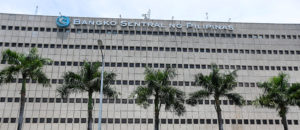The government is set to suspend the excise taxes on fuels in case global oil prices average above $80 a barrel for three straight months.
An interagency committee would issue in the next few weeks the guidelines on the suspension in case a provision in the Tax Reform for Acceleration and Inclusion (TRAIN) Act is triggered.
The law provides: “For the period covering 2018 to 2020, the scheduled increase in the excise tax on fuel as imposed in this section shall be suspended when the average Dubai crude oil price based on Mean of Platts Singapore for three months prior to the scheduled increase of the month reaches or exceeds $80 per barrel.”
The Dubai crude, the bellwether for Asia, has already reached $77.22 per barrel after dipping to $45.89 in July 2017.
Finance Undersecretary Karl Kendrick T. Chua told reporters that a temporary suspension could result in P40 billion in foregone revenues next year, taking into account higher tax rates supposed to take effect in 2019. He said, however, the value-added tax (VAT) collected from oil products might offset the effect of this move.
He said the guidelines would also dictate when the government could resume collecting the excise tax.
“Some people think the suspension will stop the excise taxes forever, but that’s not what it means,” he added.



